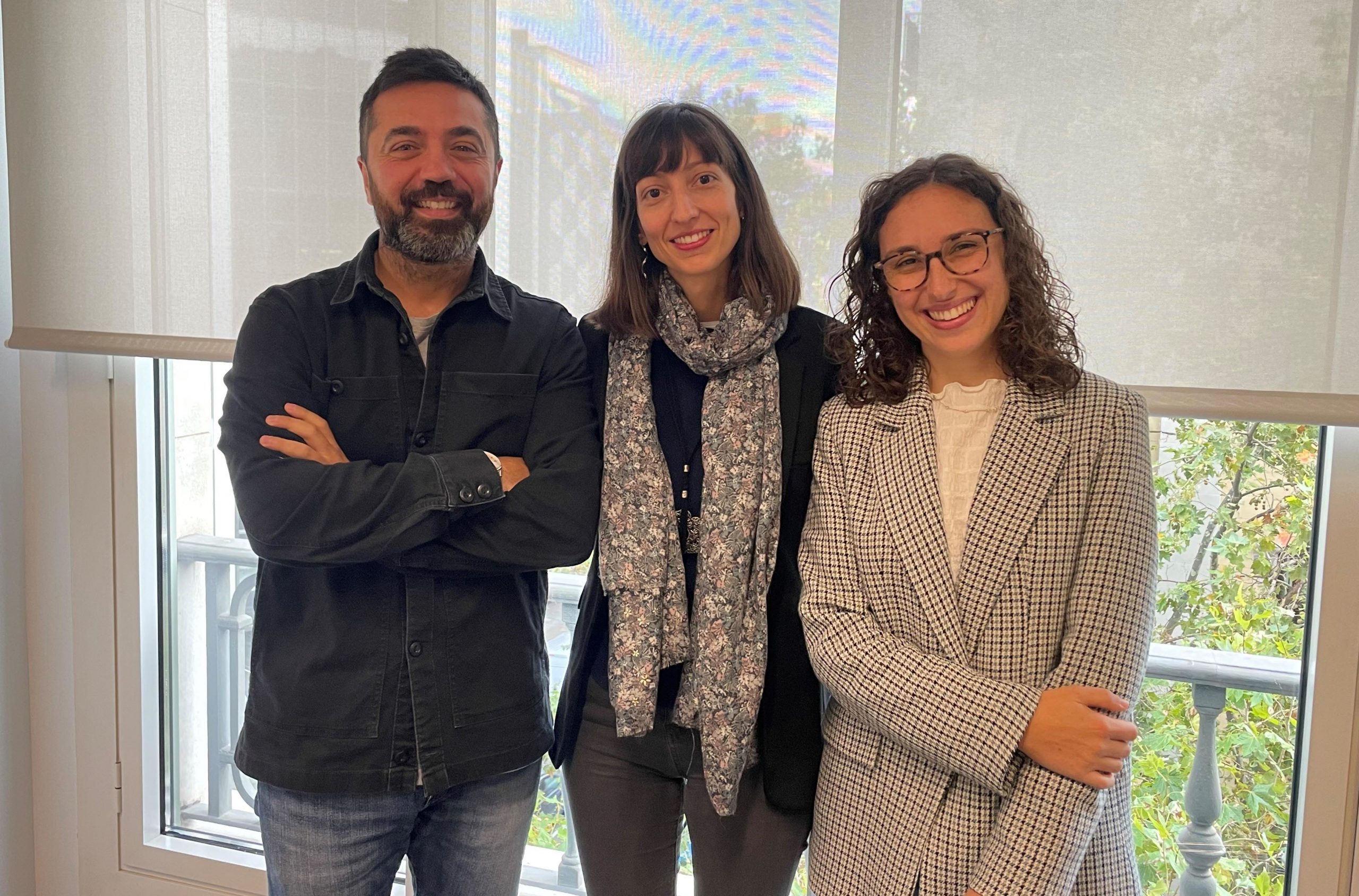
Flavii Therapeutics is born, a UB spin-off developing epigenetic therapies against Alzheimer’s
Alzheimer’s disease is the most common cause of dementia, affecting more than 50 million people worldwide, and currently no effective pharmacological treatment exists. With the goal of addressing this challenge, the University of Barcelona (UB) has promoted the creation of the spin-off Flavii Therapeutics, which specializes in developing epigenetics-based drugs to combat Alzheimer’s. This pioneering strategy also opens the door to designing medications for other neurodegenerative diseases such as Huntington’s disease or Parkinson’s.
The founding partners of the new company are Christian Griñán-Ferré, professor in the Department of Pharmacology, Toxicology and Therapeutic Chemistry at the Faculty of Pharmacy and Food Sciences of the UB and a member of the Institute of Neurosciences; postdoctoral researcher in the same department Aina Bellver; and Ariadna Boloix, who is responsible for the company’s management and transfer aspects.
The project has its origins in Dr. Griñán-Ferré’s doctoral thesis and in subsequent research with Dr. Bellver. However, as the two founders emphasize, the creation of Flavii Therapeutics is the result of the synergies generated over years of scientific collaboration, research projects, and knowledge transfer initiatives between the Medical Chemistry and Pharmacology groups of the Faculty.
Epigenetic mechanisms to halt neurodegeneration
Flavii Therapeutics focuses on developing drugs aimed at epigenetic regulation—i.e., changes in DNA caused by age and environmental factors that do not modify the genetic sequence—which are relevant to the progression of the disease. “Many factors are involved in aging, and one of the causes is epigenetics. When these epigenetic modifications are altered, age-related diseases appear, as in the case of Alzheimer’s,” explains Cristian Griñán-Ferré.
This approach is a paradigm shift from the research and treatments of the last 30 years against Alzheimer’s, which have primarily targeted the accumulation of beta-amyloid and Tau proteins without managing to reverse the progression of the disease. “We are not sure whether these proteins are the cause or the consequence of Alzheimer’s. Moreover, it is a phenomenon that occurs in the advanced stages of the disease, when treatment may already be too late,” notes Aina Bellver.
Epigenetic therapies act in earlier phases of the neurodegeneration process, opening a window of opportunity for addressing other nervous system diseases. “All these conditions share the abnormal accumulation of proteins, which interferes with the normal functioning of neuronal cells. By pharmacologically modulating epigenetic molecular pathways at early stages, we can help eliminate these toxic accumulations. Epigenetic mechanisms thus act as a global regulatory hub, influencing multiple cellular processes and helping slow the progression of different neurodegenerative diseases,” they explain.
Specifically, the researchers have designed a new class of inhibitors of the methyltransferase G9a, a molecule that promotes epigenetic changes involved in learning and memory formation and plays a critical role in several neurodegenerative diseases. The new compound has shown great potency and selectivity in blocking this molecule and has been able to cross the blood–brain barrier that protects the brain, achieving improvements in various Alzheimer’s markers in animal models of the disease.
Towards regulatory preclinical studies
In view of these advances, Flavii Therapeutics aims to begin regulatory preclinical studies of the new drug for Alzheimer’s and, possibly, also for Huntington’s disease. These studies are intended to assess the compound’s safety, efficacy, and toxicity in animal models before clinical trials in humans can begin.
This progress is based on an innovative drug design that has overcome the main obstacles that previously prevented G9a inhibitors from reaching the clinical phase: The new compound acts specifically on G9a without interfering with other similar targets, significantly reducing toxicity. In addition, it has been conceived from the outset to address neurodegenerative diseases, unlike others derived from cancer treatments and repurposed for other indications.
Commitment to neurodevelopmental disorders
Another research line of the company focuses on neurodevelopmental disorders, as previous studies have suggested that the same epigenetic targets may also be involved in these conditions. This line of work also has a personal component: Dr. Griñán-Ferré’s daughter suffers from one of these diseases and is, in fact, the inspiration behind the company’s name, as the girl is named Flàvia.
From basic research to the creation of the spin-off
The creation of the new spin-off comes after completing the entire journey of the Knowledge Industry program, promoted by the Department of Research and Universities of the Government of Catalonia to support knowledge transfer. The research that led to Flavii Therapeutics successfully passed through the program’s three funding modalities (Seed, Product, Innovators), covering all phases of the valorization process: from prototypes, proof of concept, and pharmacological complex characterization, to the creation of the spin-off, the hiring of specialized profiles, and finally the formal establishment of the spin-off company.
Dr. Jordi Camarasa, dean of the Faculty of Pharmacy and Food Sciences, highlighted the importance of the company’s launch. “The creation of Flavii Therapeutics is a step forward in the knowledge transfer of our faculty. This project, born from basic research and consolidated through years of scientific collaboration, exemplifies how the talent and innovation of our faculty and researchers can be translated into new therapeutic opportunities against Alzheimer’s and other neurodegenerative diseases.”

